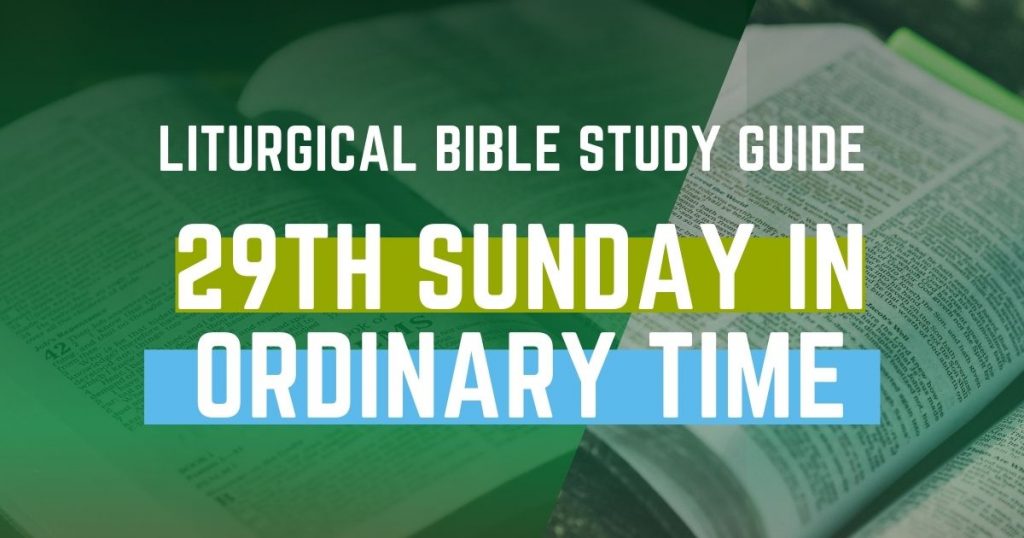1st Reading – Isaiah 53:10-11
As we learned before, scripture scholars have divided Isaiah up into two (or three) groups and attributed authorship of each group to different individuals (or possibly groups of individuals), although other than Isaiah, their identity remains unknown. The first century Christians, like their brother Jews, attributed all chapters of Isaiah to one author: Isaiah.
In the sixth chapter of his book (6:1-3), Isaiah describes his call to prophetical office: “In the year King Uzziah died (737 B.C.), I saw the Lord seated on a high and lofty throne, with the train of his garment filling the temple. Seraphim were stationed above; each of them had six wings: with two they veiled their faces, with two they veiled their feet, and with two they hovered aloft. ‘Holy, holy, holy is the LORD of hosts!’ they cried one to the other. ‘All the earth is filled with his glory!’”.
As tradition ranks the choirs of angels, the seraphim are the highest, the closest to God’s burning love, which is why they are called seraphim (it means “the burning ones”). The lowest are angels (guardian angels). Since the Hebrew language cannot describe intangible things, and all angels (seraph and otherwise) are pure spirits, some form must be given them in order to describe them. In the case of the seraphim, they are winged serpents – dragons in the book of Revelation where the fallen seraph, Lucifer, is described. The snake in the Garden of Eden was also Lucifer, the winged (although not described) snake. Perhaps he is described without wings because he has fallen and can no longer fly.
The Seraphim are saying “Holy, holy, holy.” Again, the Hebrew language has no way of applying modifiers to words. They could not say “good, better, best”. In order to achieve emphasis or degree, the word was repeated. The number three was the number of completion. When we say the Holy, Holy, Holy in Mass, we are repeating the prayer of the angels as recorded in Isaiah 6:3 [and complete that prayer with “blessed is he who comes in the name of the Lord. Hosanna in the highest” (Mark 11:9-10)].
Today we hear from what has been called Deutero- or second Isaiah. Everyone has heard of the Suffering Servant Songs of Isaiah, the first being 42:1-4, the second 49:1-6, the third 51:4-44, and the fourth 52:13-53:12. Today’s reading is the conclusion of the fourth Suffering Servant Song.
Summary: Victory, although never enjoyed by the servant during his lifetime, is proclaimed.
2nd Reading – Hebrews 4:14-16
Last week we heard about God’s judgment and how He can discern the thoughts and intentions of the heart. This week we begin the section of the book of Hebrews which discusses how Christ, our high priest, is greater than the priests of the Mosaic Law. Our confidence is based on Christ’s high priesthood. He is the perfect priest because He is merciful and compassionate. As man, He has experienced the sufferings that affect us, although He was free from sin. Since He knows our weaknesses so well, He can give us the help we need, and when He comes to judge us, He will take that weakness into account. We should respond to the Lord’s goodness by staying true to our profession of faith. A Christian needs to live up to all the demands of his calling; he should be single-minded and free from doubts
Gospel – Mark 10:35-45
This week we study Jesus’ third teaching on Christology and discipleship. Each of the other two teachings started with Jesus predicting His passion. The first prediction ended with Jesus telling Peter “Get behind me, Satan,” telling him to remain a follower and stop tempting Him. The second prediction “the Son of Man is going to be betrayed into the hands of men. They will kill him and after three days he will rise” was not understood by His disciples and they were afraid to question Him about it – perhaps because of His reaction to Peter after the first prediction.
This third teaching also starts with a passion prediction, although it is not included in today’s reading. As way of background, let’s now listen to this third passion prediction and follow it immediately with the gospel reading. This is Jesus speaking.





